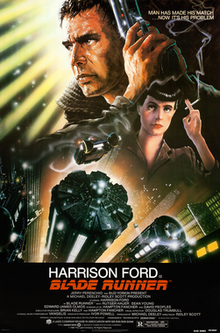CINEMA REVIEW: INDIANA JONES and the DIAL OF DESTINY (2023)
Directed by James Mangold
Written by: Jez Butterworth, John-Henry Butterworth, David Koepp
and James Mangold
Based on Characters by George Lucas and Philip Kaufman
Produced by: Kathleen Kennedy, Frank Marshall and Simon Emanuel
Main cast: Harrison Ford, Phoebe Waller-Bridge, Antonio Banderas, John Rhys-Davies, Toby Jones, Boyd Holbrook, Ethann Isidore, Mads Mikkelsen, etc.
Cinematography: Phedon Papamichael
*** MAY CONTAIN SPOILERS ***
Raiders of the Lost Ark (1981) was one of the most memorable cinema experiences I ever had in my early life. Myself and my younger brother went and watched it at the ABC Cinema Fulham in 1981. I was eleven and he was nine year’s old. After the film ended, we were exhilarated and hungry. We decided that rather than spend our remaining money on bus fare, we’d prefer to walk home to Battersea and share a bag of chips in the rain.
The three mile walk lasted no time at all as we were full of excitement about the incredible film we’d just witnessed. Gigantic rolling balls, snakes in cockpits, treacherous monkeys, villainous Germans, a hard-drinking heroine, unforgettable fights, shootouts, chase scenes galore, and a whip-cracking, charismatic, never-say-die archaeology Professor as our leading protagonist. Those Nazis never stood a chance chasing the ultimate McGuffin in the lost Ark of the Covenant.
My brother and I bounced out of the cinema wishing we were Harrison Ford. He portrayed the world-weary and intelligent man of action, Indiana Jones, superbly. After Ford’s star-making turn as Han Solo, here he was doubling down and cementing his place as one of the most charismatic screen actors. Fast-forward forty-two years later and Ford is back for the fifth outing of “Indy” in Indiana Jones and the Dial of Destiny (2023). After the disastrously poor Kingdom of the Crystal Skull (2008), could ‘Dial’ redeem the franchise? Well, given they spent almost $300 million dollar on it, I would say, no!
The story, if you can call it that, finds a grouchy and retired Indy, literally now a crumbling fossil himself, dragged into the murky shenanigans of his god-daughter, portrayed by critic’s darling, Phoebe Waller-Bridge. She’s looking for an ancient artefact that also happens to be sought by nefarious agents, led by Mads Mikkelsen. He is flanked by evil ‘Laurel and Hardy’-type henchmen and the ensemble hurtle around the world, travelling by map, all trying to out-do and kill each other. Apparently the ‘Dial of Destiny’ has magically temporal abilities which can blah! blah! blah! Of the main cast Waller-Bridge is okay, but her character arc is confusing as we never quite care which side she is on. But, Mikkelsen impresses as the villain whose fiendish plan is frankly preposterous and revealed way too late into the final act.
Maybe I am just a grumpy old git, but I did have real issues with the story and screenplay of Indiana Jones and the Dial of Destiny (2023). Oh, and the characterisation, darkly shot set-pieces, choppy editing, and gigantic plot-holes. James Mangold is a fine genre filmmaker and has made some terrific films during his career, but this is not one of them. It just smacks of another cynical money-making exercise by Disney, with little or no respect for the original’s legacy. Worst of all it was predictable, overlong and tedious. Having said that Harrison Ford is absolutely fantastic as Indiana Jones. He brings a real gravitas and emotional depth to the character. His physical stamina, given his age, is admirable too. Unfortunately, the screenplay should have been locked away with the Ark of the Covenant and never seen the light of day.














